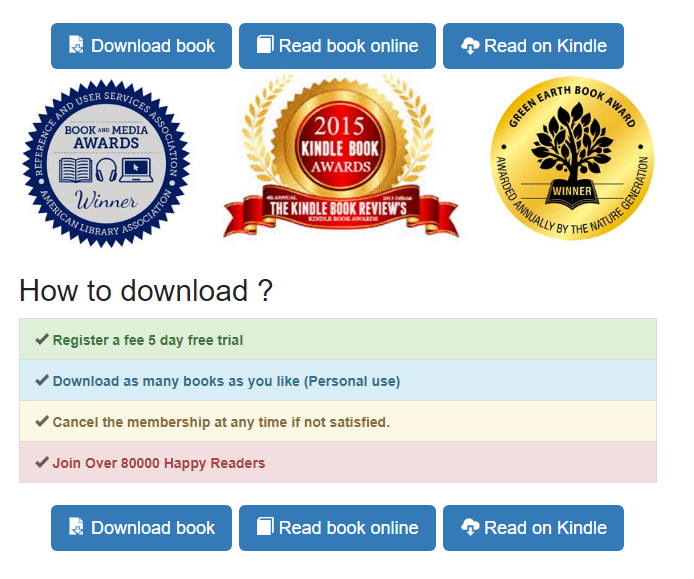REGISTER AND FREE DOWNLOAD 📚 E-book download HISTORY OF MATHEMATICS. HISTORICAL SKETCH OF THE DEVELOPMENT OF GEOMETRY. VOLUME ONE - M.E. VASCHENKO-ZAHARCHENKO📚
📚REGISTER AND FREE DOWNLOAD BOOK OR BUY BOOK ONLINE📚
HISTORY OF MATHEMATICS. HISTORICAL SKETCH OF THE DEVELOPMENT OF GEOMETRY. VOLUME ONE - M.E. VASCHENKO-ZAHARCHENKO

📘HISTORY OF MATHEMATICS. HISTORICAL SKETCH OF THE DEVELOPMENT OF GEOMETRY. VOLUME ONE - M.E. VASCHENKO-ZAHARCHENKO📘


📖Book Descriptions:📖
Java in the 14th Century: A Study in Cultural History – The Nagara-Kertagama by Rakawi, Prapanca of Majapahit, 1356 A.D. by Rakawi Prapantja is an exploration and analysis of Java's history in the Fourteenth century. There have been many written and verbal histories of Java, but Rakawi Prapantja's Nagara-Kertagama is one of the most important surviving source documents. This important work contains elements of literature, religious identity, intellectual heritage and cultural history that continue to dominate Java's cultural life today.The Nagara-Kertagama is an epic poem in which Rakawi Prapantja recounts his travels across Java and the life of the Majapahit Empire during the 1300s. Through this poem, Prapantja provides us with invaluable information and insight into the lives of the people of Java in the Fourteenth Century and their culture.Rakawi Prapantja's work provides readers with an understanding of the various political and religious systems, architectural and artistic styles, cultural norms, and class and gender stratifications that existed in the 1300s. In providing an account of the various aspects of the Majapahit Empire and the culture of the Javan people during the Fourteenth Century, Rakawi demonstrates his commitment to capturing the lives and culture of Java, making this an indispensable source for anyone interested in the history of the region.Rakawi Prapantja's Nagara-Kertagama is an essential text for anyone studying the history, culture and life of Java in the Fourteenth Century. Through his work, Rakawi provides us with an invaluable source of insight, understanding and knowledge of a period in Java's history and the wider region. His work is essential for anyone studying the region and its life before the arrival of the colonial powers.
This book is a study of the rise and fall of the Majapahit Empire in the 14th century. It provides readers with a vivid insight into the culture and politics of the time, as well as the historical importance of Java and the surrounding islands. It begins with an overview of the region, including geographical features and its relationship to today’s modern nations. This is followed by an examination of the major political entities of the period, including the city-states, empires and kingdoms. Next, the author looks at the emergence of Majapahit and the reign of its greatest ruler, the mighty King Hayam Wuruk. After this, the book considers the development of commercial and trade relations between Majapahit and the outside world, and the impact of Islam on the empire’s history and culture. Finally, Rakawi Prapanca provides a comprehensive study of the Nagara-Kertagama, the official chronicle of the Majapahit Court.Throughout the book, Rakawi Prapanca applies careful historical analysis to the sources in order to bring an insightful and original view of the period. Through an examination of the complexities of the political situation, economy, society, culture and religion, he paints a vivid picture of the Majapahit Empire and reveals the power of its status, both within the region and beyond. Furthermore, the book offers readers a detailed understanding of the Nagara-Kertagama, a major source of insight into the culture and history of Java in the fourteenth century. Java in the 14th Century: A Study in Cultural History – The Nagara-Kertagama by Rakawi Prapanca of Majapahit, 1356 A.D, serves as a valuable resource for anyone interested in exploring and understanding the rich culture and history of Java in the Late Middle Ages.
Java in the 14th Century: A Study in Cultural History was written by Rakawi Prapanca of Majapahit, 1356 A.D. and published in 1972. This book is a transcription and analysis of the Nagara-Kertagama, an important document from the Indonesian golden age composed by the famous court poet and historian Rakawi Prapanca. Written in the old Javanese language, the Nagara-Kertagama is an important source of information about cultural life, economy and foreign relations of the Majapahit Empire as well as the transition from Hinduism to Islam in Java. In the book, Rakawi Prapanca provides an in-depth analysis of the Nagara-Kertagama, arguing that its contents provide an important insight into the society, language and culture of the Majapahit Empire at the time. He also provides a comprehensive description of the social customs and religious beliefs of the people of Java at the time, particularly in relation to the religious transition from Hinduism to Islam.Throughout the book, Rakawi Prapanca is critical of the Majapahit Empire and its rulers, particularly their failure to protect their people and maintain control over foreign relations. Moreover, the book provides a fascinating cultural insight into the everyday lives of the people of Java in the 14th century, highlighting the diversity and dynamism of the society. Ultimately, Java in the 14th Century: A Study in Cultural History is an important document for anyone interested in the history and culture of the Majapahit Empire. With its fascinating and detailed account of the Majapahit Empire and its society, the book provides a unique and invaluable source of knowledge about life, language and culture in Java during this era.





0コメント